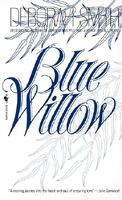In New York Times article What is it about 20-Somethings?, author Robin Marantz Henig spends over 8000 words discussing why people in their 20s are less likely than their ancestors to settle down, estabilish roots, and, generally, grow up. The author also devotes a great deal of time to the question of whether this is a natural biological bent, or if something in our culture is causing this trend.
Go ahead and read the article and form your own opinion before we get to mine. I'll wait. No really, go ahead. Com'on, you know I want you to... ;-)
Welcome back! Ready to hear my opinion? Of course you are, EVERYONE wants to know MY opinion. That's why I blog! Alright, without further ado (ok, just a little: drumroll, please!): I think it's culture. Partly because this "phenomenon" does not show up outside of the western world, and partly based on my own experiences as a Gen X 20-something.
In his moviementory, Waiting for 'Superman', Dave Guggenheim cites a study that says American children rank 21st and 25th in the world in science and math, yet #1 in confidence. We are told we can do anything we want, be anything we want, and we believe it. We're also told that we should try to find jobs that we love, to wait for a soulmate, and that kids are tricky and better saved till later.
So then we graduate from college, with our shiny pieces of paper and our dreams, and find that our ideal perfect fit job (if we've figured out what that is - it's not all that easy to decide ahead of time what will be personally fulfilling, especially since we are now good at all sorts of divergent things, thanks to lots of praise and zillions of extra curricular lessons and activities as kids) is not an entry-level position (or requires several years of committment: I once turned down an absolutely fantastic job because they wanted assurance I'd stick with them for 6 years), everyone wants us to have "experience," and the best living space we can afford is a mildewed studio apartment in a bad neighborhood. Unless the parents help out.
Since the parents love us, want us to keep loving them, and may just feel some guilt over missing a swim meet or two to work and therefore have long ago established patterns of buying our affection, they help us out. Besides, our success or failure reflects on them as human beings.
Presto! We 20-somethings now have the freedom and angst to try to pin down our dreams. Once we get life all figured out - the perfect job and house and life partner and hobbies - once we are entirely fulfilled, we'll start living. It makes more sense to create detailed architechtural plans before building the house, right?
Unfortunately, we still feel that the possibilities are limitless (or limited only by mean people not letting us get what we deserve), and so instead of sturdy cabins, we draw up magnificent castles in the clouds. (I don't mean that we shouldn't dream, but from what I've seen of 20-somethings - myself included - we are not always realistic about our hopes, nor inclined to be content with "settling" for something that is reasonable and puts food on the table. Sure, I love philosophy, but there are not many jobs in that line, and I like working with kids, so why not do that?) When we don't get exactly what we want - sometimes even when we do - we worry about being unfulfilled, not getting the most out of life (or making enough difference), wasting time. So we tend to not committ, not settle down, and avoid responsibility as long as possible. (Responsibility cements things and limits future options!)
I am being a bit cynical and tongue-in-cheek here, making fun of myself and my fellow wanderers. It is true that we don't settle down nearly as early. It is true that society and our parents pushed us to be all that we can be (remember that incredibly successful Army recruiting slogan?) and that that is a hard prospect to live up to. It's also true that there are a lot more opportunities now than there were just a generation ago. I live in Russia, keep in touch with family and friends by internet, and take transoceanic flights for just 1/4 of my monthly salary. It would not have been possible for my parents to do any of those things at my age. I deeply value the experiences I've had. But I still don't know what I'm going to do with my life.
There are just too many good options.






